SCARBOROUGH — Denise McNitt said packing up 10 harness racehorses and moving them from Maine to Delaware each year is no picnic.
But it’s a financial necessity for McNitt and her husband, Kevin Switzer, who trains the couple’s horses.
“They race for a lot more money here,” McNitt said from Harrington, Del., where she and her husband race their horses four to five months a year, with the rest of the year spent at Scarborough Downs. The Delaware track’s full name — Harrington Raceway & Casino — goes a long way toward explaining why McNitt and Switzer find racing in Delaware much more lucrative than in Maine.
“Maine is our home,” McNitt said. “It would be wonderful to race them in Maine all year long. But it’s just not possible with the purse structure.”
The exodus of horses from Maine to states with racinos — racetracks with casinos or slot machine parlors — reflects the declining fortunes of the harness racing industry in Maine. And the situation is particularly dire at Scarborough Downs, which many fear may have to close without a racino to support the races and draw in customers who may have lost interest in harness racing, but might be attracted by slot machines and table casino games.
In the past 10 years, the Downs’ handle — the total amount of money gambled on races has dropped 40 percent, from more than $2.6 million in 2002 to an estimate of less than $1.6 million this year by the time the last race of the year is run this afternoon. Scarborough Downs hasn’t kept attendance figures since it stopped charging for admission in 2002, track officials said.
For horse owners, the declining handle means a sharp drop in the amount of money they can make by running their horses in Maine and explains why many choose to spend part or all of the year at tracks in states with racinos, including New York, Pennsylvania, Delaware and, soon, Massachusetts. The best horses, owners say, are sure to race out of state rather than in Maine.
The impact goes beyond the horse owners and is felt far from the half-mile oval at Scarborough Downs, affecting hundreds of jobs, millions of dollars in economic impact and even the future of some farms that have been around for decades.
“Our future looks pretty dim,” said Ernie Lowell, a Saco farrier who has been shoeing horses at the Downs for 43 years.
Scarborough Downs is outgunned by tracks where purses, supplemented by casino revenue, are several times higher than in Maine. And the disparity is growing, despite a supplement to the Downs’ purses from its share of revenue from the Hollywood Slots casino in Bangor. Most of the purse is still dependent on how much is wagered in person, and that figure has been falling for more than a decade, including another 15 percent in the past two years.
POPULARITY PEAKED IN 1959
Scarborough Downs has been around since 1950, first as a thoroughbred track and, since 1973, as a harness racetrack.
The track considers 1959 its high-water mark, with nearly 260,000 spectators and the equivalent of $65 million, adjusted for inflation, bet on races. Even with the ability to bet on races around the country at Scarborough Downs through off-track betting — gamblers wager $10 on off-track races there for every $1 bet on live racing — the amount wagered at the Downs today is less than a third of the adjusted 1959 figure.
In 1959, the only places where Mainers could legally gamble were Scarborough Downs and races at county fairs and a handful of other tracks around the state.
Now, other forms of entertainment — and gambling, including state-run lottery games and a proliferation of casinos around the country — compete for customers’ time, interest and money.
About 80 people work at the track, but there are hundreds of jobs dependent on Scarborough Downs. The industry studied its impact five years ago and found that harness racing contributes about $200 million to the state’s economy and supports about 1,500 jobs. As the state’s busiest track — its 111 races next year will be more than double the number run at Bangor Raceway — Scarborough Downs is the key venue for the harness racing industry in Maine.
There are dozens of farms in southern Maine where harness racehorses, called Standardbreds, are bred and raised. Groomers, trainers and farriers care for and prepare the horses to race. Veterinarians care for the animals. And farms grow huge amounts of hay to keep the horses fed.
But horse owners are attracted to other states with larger purses, augmented by some of the take from attached slot machine parlors and casinos.
MAINE’S RACINO PLAY
Maine has its own racino in Bangor, but the Hollywood Slots facility operates separately from Bangor Raceway. However, both tracks get some benefit from the betting on slot machines under a system that allots them a portion of the gambling revenue.
In 2010, Scarborough Downs got nearly $1.5 million from Hollywood Slots to subsidize track operations — almost the same amount the track took in as bets on live races. Bangor Raceway — with fewer than half the race dates that Scarborough Downs has — received $718,000, according to the Maine Harness Racing Commission.
Smaller amounts of the slots revenue go into a fund to boost purses at the tracks, said Henry Jackson, executive director of the commission.
But in other states with more racinos, that means more slot machine money is available for increasing purses.
For instance, McNitt said the purse for a typical race of the top class of harness horses in Maine is $6,000 or so. In Delaware, it’s $30,000. To reverse the dire outlook, Scarborough Downs has tried three times to add slot machines to the clubhouse. In 2003, voters statewide opened the window, briefly, to allow racetracks in Bangor and Scarborough to have racinos, as long as the host communities approved.
Bangor voters did, and the Hollywood Slots racino followed a short time later. Scarborough voters said no.
Scarborough Downs tried again in 2008, seeking town approval that would have been used to buttress an argument to state lawmakers to reopen the window. They sweetened the pot with a development plan that called for a new town center development on Scarborough Downs’ land, but town voters again rejected the plan.
Last year, Biddeford voters approved a proposal that called for the Downs to move south and open a racino in that city. But a statewide vote that would have permitted it failed in November, leaving Scarborough Downs where it was eight years ago.
“It’s frustrating, but what are your options? You can give up or you can continue to go forward,” said Sharon Terry, who inherited the track when her husband, Joe Ricci, died in 2001. Ricci had bought the track for $990,000 in 1979.
FATE TIED TO THE TRACK
McNitt said some horse owners are very upset over the outcome of last month’s vote, and she thinks Republican Gov. Paul LePage, who remained relatively noncommittal on the issue, should have come out strongly in favor of it because the state would see increased tax revenue from a racino.
“We’re just flabbergasted that the bill wasn’t passed,” she said. “There are people who are just devastated by what happened in the election.”
People like Lowell said the reverberations of the vote will continue to be felt and will spread beyond the confines of Scarborough Downs.
He said agriculture in Maine has already lost most of its traditional livestock, from sheep to poultry and beef. If Scarborough Downs closed down, Lowell said, many of the horse breeders would likely move out of state.
That could lead some farms to be sold, he said, and many could end up as housing subdivisions,
As for Lowell personally, Scarborough Downs’ closing would mean the end of the line for his business.
“I would be finished,” Lowell said, although at 65 he could start collecting Social Security.
Lowell said he makes about $90 for shoeing a horse, and it’s more lucrative at the Downs because the horses wear lighter shoes for racing that wear down quickly. He said a harness racehorse needs shoes about every three weeks, compared with up to eight weeks for a saddle horse.
He said business is already down to about a quarter of the number of horses at the Downs that he shoed in the summer because so many have already switched to out-of-state tracks ahead of the Downs’ three-month shutdown. Other owners are trying to keep expenses down, particularly at the end of the season, and shoeing less often.
“Some of them will be running on nails” at today’s races, he said.
Lynn-Marie Plouffe said she worries about the future of her 320-acre farm in Saco where she has a horse-breeding operation and cuts about 1,500 bales of hay, half of which she sells to owners of racehorses at $55 a bale.
She said her farm’s fate is tied to Scarborough Downs’.
“If they survive, we’ll survive,” she said. “We can’t just roll up the carpet and move to another state.”
Plouffe said there’s no other market for her hay than the racehorses.
“We used to sell to dairy farmers, but there’s not too many of those around anymore,” she said. “Shame on the state of Maine.” Plouffe said the uncertainty is unsettling.
“It’s never knowing if you’re going to have a racetrack or not have a racetrack,” she said. “Biddeford Downs would have been perfect.”
DOWNS’ FINANCIAL PICTURE
Terry has tried several tacks to address the track’s finances. She’s cut staff and put most of the land around the track up for sale, although there were no takers during the year for the more than 400 acres that was on the market.
But the track has run up an accumulated debt from operations of about $10 million, said Edward MacColl, the Downs’ attorney. Terry said she’s managed to keep the accumulated debt relatively stable in recent years by cutting expenses.
Neither MacColl nor Terry would offer detailed financial figures on the track, but MacColl said a turnaround is not in the cards without allowing Scarborough Downs to compete on a level playing field, not only with Bangor, but also with other tracks around the country.
“We need to get this fixed,” he said. “Either harness racing is given a chance to compete … or we aren’t and it’s going to get tougher.”
MacColl said the statewide vote to allow Scarborough Downs to move to Biddeford and open a racino was a tough sell on a ballot with another gambling measure, to allow a casino in Lewiston. He said the state’s leading newspapers endorsed the Downs’ proposal, but selling the idea in short ads to voters proved to be more difficult.
“It’s easy for people, when they have competing messages thrown at them, to just say, ‘No,’ ” he said.
But Scarborough Downs needs a different answer to survive in the long run, he said.
MacColl noted that when he went to a racino in Pennsylvania on a cold night last January, he was told that seats in the grandstand were completely reserved, but he was welcome to sit at the bar.
From there, he watched customers shuttle back and forth from the slot machines to the grandstands to watch the races, he said.
“The place stayed full all night,” he said, noting that Scarborough Downs doesn’t even attempt to operate in the winter — it will shut down this weekend and reopen March 31.
“The long-term survival of harness racing depends on having fully integrated casinos,” he said. “Harness racing is going to be winnowed down to those states that have fully integrated racinos.”
TRY, TRY AGAIN
The industry in Maine is disappointed by the outcome of the vote last month, but it isn’t ready to toss in the towel.
Don Marean, a horse breeder who calls himself the legislative “watchdog” for the harness racing industry, said a committee is being formed to draft new legislation to allow a racino in Biddeford that it hopes lawmakers will take up in 2013.
He said one tack the group is considering is limiting the vote to York County residents, who favored the racino proposal last month. Marean said the state allowed Hollywood Slots to add table games with a county vote only, so there’s a precedent for that approach.
Marean said if Scarborough Downs isn’t allowed to operate a racino, either in Scarborough or Biddeford, it could be forced to close, which would devastate the industry.
Because a racino in southern Maine would likely take in more money than Hollywood Slots and Bangor Raceway, allowing the Downs to add slot machines would also allow Maine to claim a better spot in harness racing’s hierarchy, he said.
“Look at all the people we could pull in from the other side of the bridge in Kittery,” he said. Maine “would go from being a class B racing state to a class A racing state.”
Jackson, the executive director of the Maine Harness Racing Commission, agrees in general, but he worries that when slot machines and table games are added to harness racing, it becomes a case of the tail wagging the dog.
He said the casino tends to attract the interest, the entertainment and the gambling, and harness racing becomes an afterthought. He noted that Hollywood Slots only recently added a window to allow customers to bet on the harness races in the racino, which is in a separate building from the track.
“In Bangor, they have not advertised and pushed the racing as much as they could have,” he said. “We were the king of sports, but we didn’t do much to continue to attract new bettors and more interest and all of a sudden, we found ourselves in a heap of trouble.”
Jackson is also worried that the exodus of horses to tracks outside the state will lead to even smaller fields at Scarborough Downs. He recently suggested that the commission cut back on the number of races Scarborough Downs and Bangor Raceway are allowed to stage each year so the fields in the races are beefed up.
He said bettors don’t like “short fields” of five or six horses because it lowers the odds and payouts on bets, particularly wagers like trifectas, in which the bettor needs to pick the first three horses in order. With 11 or 12 of the “dashes” on race days, he said, the field can be spread thin.
“Some of your more experienced bettors probably would not bet a trifecta (in a small field) because the payoff is not as good,” he said.
The commission eventually tied 2-2 over Jackson’s proposal and ultimately gave both tracks the same number of races and race dates as they had last year.
Jackson said he worries that harness racing will lose its allure in Maine, and is concerned that its pace may be out of sync with the 21st century.
“We’re in a computer world and everything is instantaneous,” he said. Customers, particularly younger ones, “aren’t going to sit there and wait 20 or 30 minutes before the next race because there’s nothing to occupy them.”
He said a drop-off in horse quality would only compound the problem.
“It is difficult for us to put together some open-class racing — those are the better horses that have been moving south,” he said.
Staff Writer Edward D. Murphy can be contacted at 791-6465 or at:
emurphy@pressherald.com
Send questions/comments to the editors.


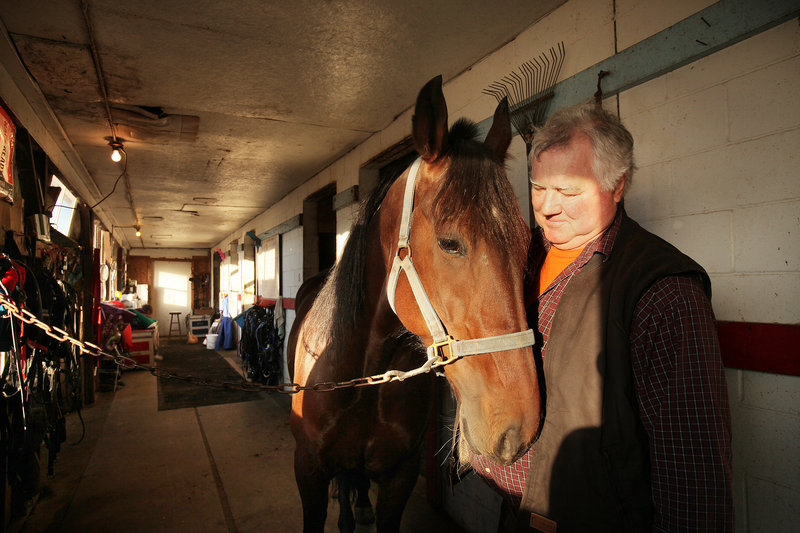
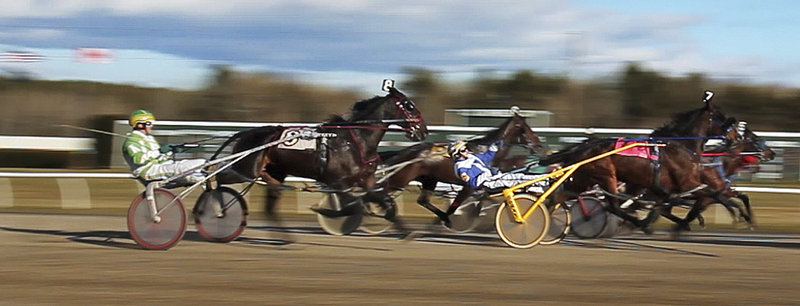
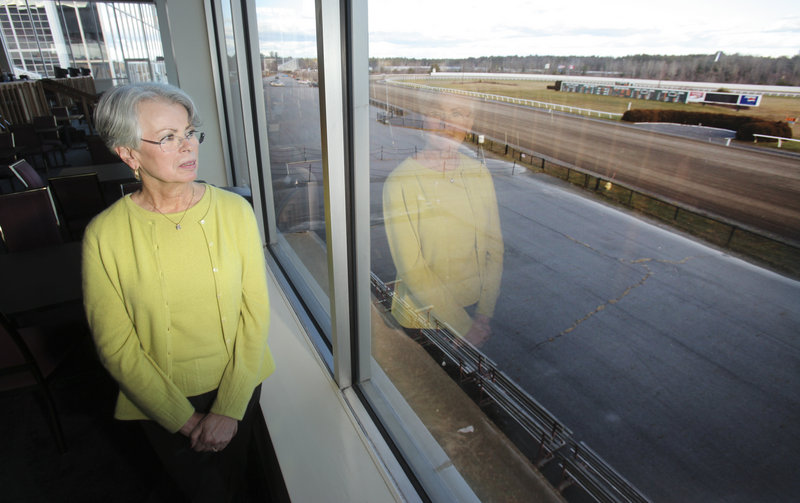
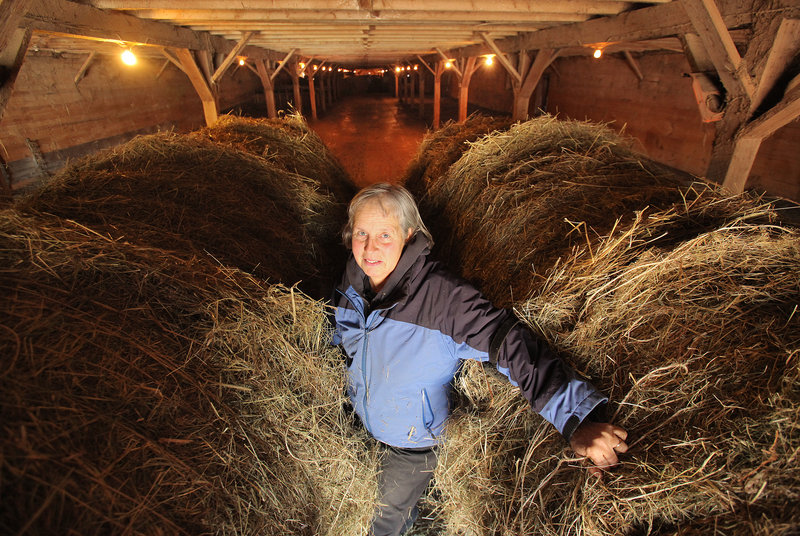
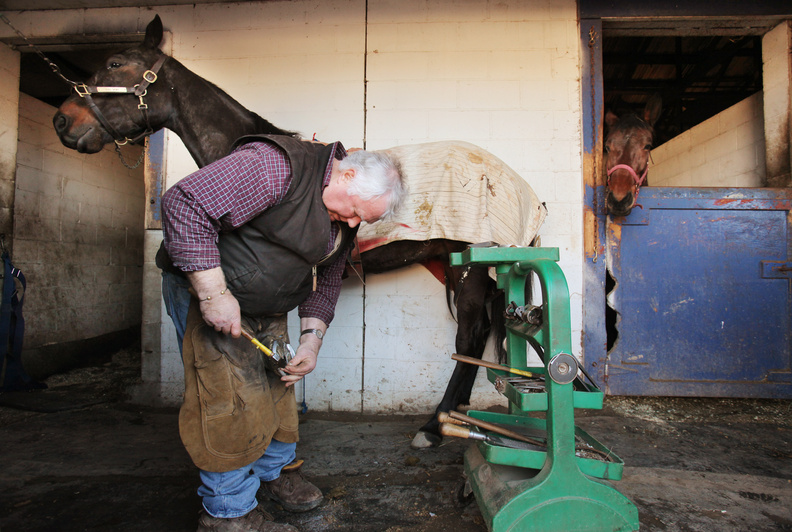
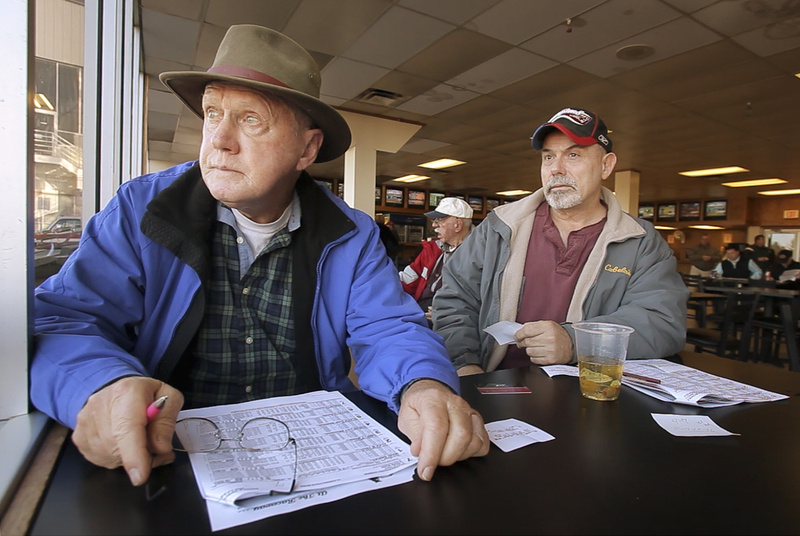

Success. Please wait for the page to reload. If the page does not reload within 5 seconds, please refresh the page.
Enter your email and password to access comments.
Hi, to comment on stories you must . This profile is in addition to your subscription and website login.
Already have a commenting profile? .
Invalid username/password.
Please check your email to confirm and complete your registration.
Only subscribers are eligible to post comments. Please subscribe or login first for digital access. Here’s why.
Use the form below to reset your password. When you've submitted your account email, we will send an email with a reset code.